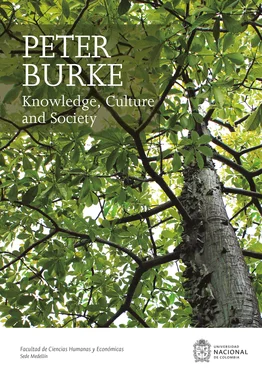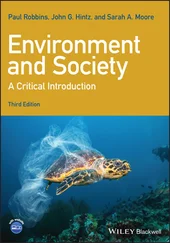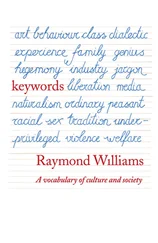Having said that, we, the ones in the world of literate practices, are westerners, even if we belong to a region of ethnical and cultural diversity par excellence, even if we live in times of decolonization and even if our phenotype and part of our daily practices indicate that we are mixed with other ethno-cultural groups. Because, who in the world can nowadays say that he or she is not a mestizo of some kind? It may sound redundant, or it may not, since from a differential focus of History and Cultural Studies, more attention must be paid to a possible Intellectual History of Other-Intellectuals. However, this must be done starting from a more general reflection on society and the culture production circuit, that is, from cognitive and symbolic practices of ignorant people (in the broadest sense of the word, and without any semantic derogatory charge), from the ways in which they are produced, and the ways in which they circulate and become appropriated, from cultural analysis and a broadening of the notion of text to all forms of speech, just like it’s understood by hermeneutics, semantics, and the wrongly named “new cultural history”; all of which don’t forget the much needed anchoring in society, as many historiographical analyses of a culturalist type do.
Naturally, writing a cultural history or, if you wish, an intellectual history of the illiterate, of the other-intellectuals, of those who left behind their knowledge in the foundations of orality and traditions, 54is much more difficult, because “their texts” are out of our reach, never materialized in written sources that withstand the passing of time. And if they reached us, it was through the voices of others, who filtered and interpreted (and perhaps betrayed: traduttore, traditore) their thinking or practices. I think, for instance, about the long tradition of ancestral knowledge produced by diverse forms of the wisdom of shamans, figures at the centre of pre-Colombian America’s communities (and even of today’s) and whose knowledge reached us, for previous centuries, through sources written by “white” literates and, not on few occasions, through the hands of judges and mediated by criminal processes, in which they were the accused part. I think also about midwives, herb-doctors and herbalists that we come to know in the same way or by the documentation of professionalization processes, of the normalization of medico-pharmaceutical practices and of illiterate practitioner’s persecutions. In these relationships, each one feels his or her own alterity, 55because literates also find themselves in an alterity relationship when it comes to knowledge and practices that they don’t understand. Literates are also a minority, even if that minority holds symbolic and, most of the time, economic and political power.
Or when we think about practical ancestral knowledge or mestizo artisanal knowledge, at risk of extinction or already extinct in some of our countries and regions due to the emergence and consolidation of modern universities; lost cultural treasures that we know through civil judgements, political movements or all kinds of sociabilities. Or about cultural intermediaries that drove their communities to action: characters like Túpac Amaru in Peru in 1780-1782 or neo-granadian artisans of the Comunero movement and the uprising lead by the Katari brothers in Alto Peru, both in 1781. And, if we think of Europe, we find a case like that of Menocchio de Ginzburg, 56the miller. This is just to name a few known examples. We can’t forget that the set of objects, practices, representations and knowledge that we denominate as popular, refers more to a particular way of appropriating what the symbolic universe of a certain culture makes available for a determined human group, than to a separate and particular set that we could denominate as “popular” or “subaltern”; a very fortunate term that Antonio Gramsci brought to our attention. 57
As I mentioned before, the space of representations is a battlefield of classifications and this is evident in conflicts between neighbouring cultures or in cultural conflicts between different groups within the same society or community. In the scientific field, we could say, following Bourdieu (although many others have addressed the issue; let’s just think about Nietzsche’s Twilight of the Idols), that a scientific discourse sanctions a state of division of the social world and the view that legitimates those divided things, through two groups: the critic of this classification and the accomplice, who shares it, in that battlefield of classifications in two fields: the one of objectified knowledge (a fight for the legitimate principle of division of the scientific field) and the one of intellectuals (a fight for the legitimate principle of division of the social field 58).
I remember the debate brought up by Chartier, in The World as Representation, in which, supported by traditions like sociology –gravitating around Bourdieu and the Actes de la recherche, about De Certeau, Elias, 59Ricœur and the hermeneutics- and also by other legacies of cultural history originated in Germany, Italy and other confines, he distanced himself from both intellectual history or history of ideas, and the history of mentalities, deeply rooted in France – in Latin America too – for several decades, with the interest of approaching reading practices and the Bibliothèque Bleue, a collection of books, printed in Troyes from 1602, that circulated among illiterate sectors in France.
It is through collective representations that people incorporate a particular view of the world and the structures of the social world they inhabit, as it was already pointed out, in a negative way, by Karl Marx in the German Ideology and in a different fashion by the other two philosophers of suspicion (Friedrich Nietzsche and Sigmund Freud) or by a neo-Kantian as Cassirer, lengthily exposed by Pierre Bourdieu, by Georg Gadamer in his works and, concretely, by Paul Ricœur in his reflections on interpretation and ideology; 60a notion presented in France, originally, by Émile Durkheim in the Revue de Métaphysique et de Morale in 1898 and, later, in a 1901-1902 text, written with his nephew, Marcel Mauss, in L’Année sociologique. 61
Diverse groups of representations, even within the same society, imply diverse ways to make sense of the experience of the world and to appropriate it. And this includes, of course, the world of writing, and it’s what gives importance to the analysis of appropriation and the forms of circulation of texts, of discourses, symbolic practices, ideas and theories - scientific or not -, because, in every act of appropriation there is an act of change, of transformation, of contribution, of loss and of recreation, that stamps the seal of the “hermeneutical horizon” (Gadamer, Koselleck) or the “epistemological profile” (Bachelard) characteristic of the human group in which it circulates. Works travel around the social world (Chartier). This also requires us to think that “reception,” as such, doesn’t exist, because instead of being a passive act, it is a transformative one, even if academic theories don’t allow us to elucidate it at first sight. The most obvious examples are the practice of law, and judicial and juris-prudential theories, their circulation and appropriation all around the world.
Regarding this matter, Chartier pointed out that, for “the diverse meanings conferred to a text, or to a group of texts”, it wasn’t only required to analyse the “repertoire with its motifs”, 62but also the principles “of classification, organization, verification”, “that govern their production, as well as revealing the structures of written objects (or oral techniques) that ensure their transmission”. 63Experience is irreducible to speech 64, even if its traces reach us, investigators, “through texts that want to organize, subdue or represent it”, so we can’t reduce or identify the “‘practical logic’ that governs behaviour”, “the identities and social relations” with the “hermeneutic, literate, logocentric, scriptural logic” that wishes to “fixate sense and articulate the correct interpretation that should constrain the act of reading (or looking)”, 65so it will be necessary to analyse the appropriation reaching the collective, what doesn’t remain in the personal sphere, or even among minorities, since, finally, intellectual lived history, the one that we all live as actors of its interweaving, takes paths - sometimes uncertain- in which we receive thoughts and are nourished in unexpected ways and learn, from someone, something that was thought by someone else in a distant place. I think about Hartog, about his historicity regimes, his notion of time, of omnipresent present, partly based in Paul Ricœur’s work but that through him show a strong influence of Koselleck (and therefore of Gadamer) and of the Sattelzeit notions - strata of time -, expectation of future, historic-hermeneutical horizon. 66
Читать дальше












